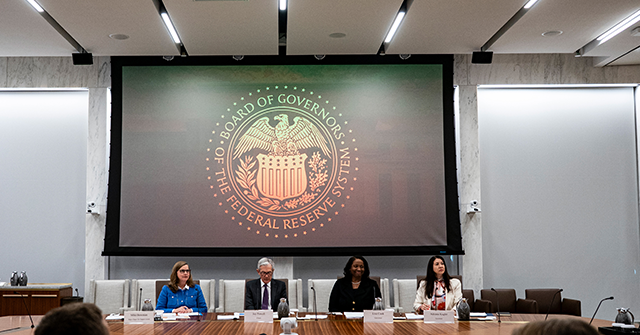Breitbart Business Digest: The Feds Tariff Inflation Orthodoxy
3 minute readPublished: Thursday, July 10, 2025 at 12:00 am

The Fed's Tariff Inflation Orthodoxy: A Deep Dive into the FOMC Minutes
Recent Federal Open Market Committee (FOMC) minutes reveal a unified stance within the Federal Reserve regarding tariffs: they are viewed as inherently inflationary. The minutes from the June meeting show that every participant who discussed tariffs shared this perspective, with no dissenting voices. The discussion centered not on *if* tariffs would raise prices, but *how much*, *how fast*, and *for how long*.
Some officials anticipated a modest or delayed impact, particularly if businesses were utilizing pre-tariff inventory. Others warned that smaller firms and those with narrow profit margins would likely pass costs onto consumers. Concerns were also raised about the potential for businesses, even those not directly affected, to increase prices on related products. Several participants expressed worries about inflation expectations becoming unmoored.
The Fed staff mirrored this view, projecting that tariffs would increase inflation this year and provide a small boost in 2026. However, they revised their inflation outlook downward in June while upgrading their growth forecast. This was attributed to the assumption that effective tariff rates would remain lower than in April, due to a 90-day pause agreed upon in May.
That assumption now appears outdated. The 90-day pause has ended, and the Trump administration has initiated a second wave of tariffs, including new duties on copper, pharmaceuticals, and broader enforcement on strategic imports. This suggests a likely upward revision to the Fed's inflation outlook.
The article highlights a deeper concern: the Fed's apparent lack of intellectual diversity on the issue. No participant questioned whether tariffs might have non-inflationary or even deflationary effects by dampening demand. The minutes do not reflect any consideration of tariffs potentially strengthening domestic industry, reallocating supply chains, or reducing reliance on adversaries. The author suggests that this consensus may be politically convenient but analytically fragile, potentially treating trade adjustments solely as costs rather than investments. The article draws a parallel to the Fed's past missteps, particularly its dismissal of inflation as transitory in 2021.
BNN's Perspective:
While the Fed's concern about inflation is understandable, a more nuanced approach to tariffs is warranted. The potential for tariffs to impact inflation is undeniable, but the exclusive focus on this aspect, as reflected in the FOMC minutes, seems overly simplistic. A more balanced perspective would consider the potential for tariffs to reshape the economic landscape, including the possibility of strengthening domestic industries and reducing reliance on foreign entities. The Fed should strive for a more comprehensive analysis, acknowledging both the potential risks and benefits of trade policy.
Keywords: Federal Reserve, FOMC, tariffs, inflation, economic policy, trade, prices, Trump administration, monetary policy, inflation expectations, GDP growth, supply chains, domestic industry, economic reform